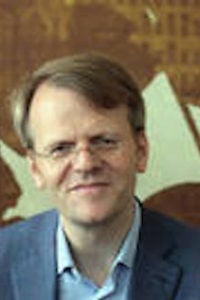
Areas of Expertise:
Brief Bio
Morten Bergsmo, a European international lawyer, has served as an academic in China, Europe and North-America. He is Director of the Centre for International Law Research and Policy. He has authored or edited more than 60 academic publications in international law, including 18 books.
Through his institutional and academic service, Bergsmo has coined and developed several key concepts in the contemporary international criminal law discourse, such as ‘positive complementarity‘, ‘impunity gap‘, ‘contextual element’, ‘objective and subjective elements’, ‘thematic prosecution‘, ‘old evidence of core international crimes‘, ‘military self-interest in accountability‘, ‘fact-work‘, ‘quality control in fact-finding‘, ‘quality control in preliminary examination‘, and ‘capacity engagement‘. He conceptualised and led the five-volume project ‘Historical Origins of International Criminal Law‘, the largest research project in international criminal law to date.
Formerly, Bergsmo served academically as Visiting Professor, Peking University Law School (2012-18) and Georgetown University (2010-12); Fernand Braudel Senior Fellow, European University Institute (2011 Spring); Visiting Fellow, Stanford University (2010-13); Visiting Scholar, UC Berkeley (2010 Spring); Researcher, University of Oslo (2010-12); and Senior Researcher, PRIO (2006-09). He has consistently been ranked among the top teachers at the universities where he has taught. He has practiced as Special Adviser to the Office of the Director of Public Prosecution of Norway (2007-08); Senior Legal Adviser and Chief of the Legal Advisory Section, ICC Office of the Prosecutor (2002-05); Co-ordinator of the establishment of the ICC Office of the Prosecutor (2002-03); Legal Adviser, ICTY (1994-2002); and Legal Adviser, UN Commission of Experts for the Former Yugoslavia established pursuant to Security Council resolution 780 (1992) (1993-94). He represented the ICTY to the UN negotiation process to establish the ICC (1996-2002) and has extensive multilateral and international organizations experience. He has advised peace processes, the European Commission, several governments, and the Nobel Committee.
Bergsmo has pioneered the equalisation of access to international law, arguing that access should be open to increase professional quality and empowerment, and to broaden discourse communities. To serve this policy objective, he has created the ICC Legal Tools Database, Case Matrix (for which he received the 2008 Dieter Meurer Prize for Legal Informatics), and Lexsitus — services that enjoy millions of hits by thousands of users from around the world and have inspired the creation of other software — and founded CILRAP and its departments CMN and FICHL and the Torkel Opsahl Academic EPublisher (TOAEP), the first open-access publisher of its kind in international law. Through various CILRAP activities and his personal example since 2012, he has urged a greater engagement with international law capacity in China and India.
Bergsmo has three children, descends from an old Norwegian family, and has his base in Florence. He has worked or studied in Beijing, Cambridge, Copenhagen, Florence, Geneva, Haifa, London, New York, Prague, Oslo, Stanford, The Hague and Washington, DC. He is occasionally on Twitter @MortenBergsmo.
Courses taught at CTLS
- International Criminal Law: The ICC and the Emerging System of Criminal Justice for Atrocities (Fall 2011)
